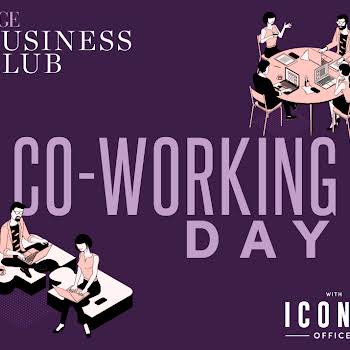
By Colette Sexton
21st Jun 2019
21st Jun 2019
Clem Onojeghuo via Unsplash
Journalist Colette Sexton explains why job seekers shouldn’t underestimate the value of experience when job hunting.
Currently, teenagers are slowly coming into the light following the Leaving Certificate, and it is likely that a large chunk of those 55,700+ students will go on to third level education. Nearly a quarter of a million people studied a third-level course in Ireland last year — a record number.
The value of experience
But when it comes to experience versus education, what is more valuable to employers? Experience, according to the managing director of Matrix Recruitment, Kieran McKeown.
“In sectors like customer service, operations/warehouse, hospitality, tourism, builders’ providers and some financial services roles, your experience triumphs over your education,” he said. “Many candidates learn on the job and companies promote internal education programmes where they can train their staff their own way.”
In roles with a more regulated environment, like accounting or law, education is more important, according to Kieran, but as people climb the ladder, education becomes less important.
He said: “Your performance in the role you are in is what counts. What have you done since you got the job? What achievements, big or small, have you had since you started?”
Building up
While building your career, it is important to focus on doing your job really well, but also continuing to educate yourself through appropriate courses, according to Kieran.
He said: “You need to continue upskilling, no matter what sector you work in. Technology and automation processes are constantly changing, and it is the individual’s responsibility to keep on top of the changes in their industry. Your employer will see that you are taking initiative and have the willingness and enthusiasm to learn. Your employer will also see that you are willing to take the steps in order to improve your work performance and therefore help the company as a whole.”
Your performance in the role you are in is what counts. What have you done since you got the job?”
For those with no third level education, Kieran said it is important that they apply for the right jobs. He said: “You need to carefully read the job requirements and be realistic if you can do well in that job or not. You need to sell your experience and yourself to your potential employer rather than focusing on education.”
He advised job seekers to research the sectors they are interested in and the type of candidates they hire. Talk to people who are currently working in the sector and ask their advice on how they got started.
When it comes to particular companies, find out what their culture is and their company values.
Kieran said: “Over the next 5 years, with the introduction of further technology and automation, employers will be looking for more defined soft skills as we may see robots and robotics coming more and more into the workplace and replacing some human roles.”
Featured image: Clem Onojeghuo via Unsplash
- Read more: Mean job interview tricks to look out for (and one to use yourself)
- Read more: The myth of the bitchy female boss
- Read more: What to do when your career goes to plan but you’re still not happy























